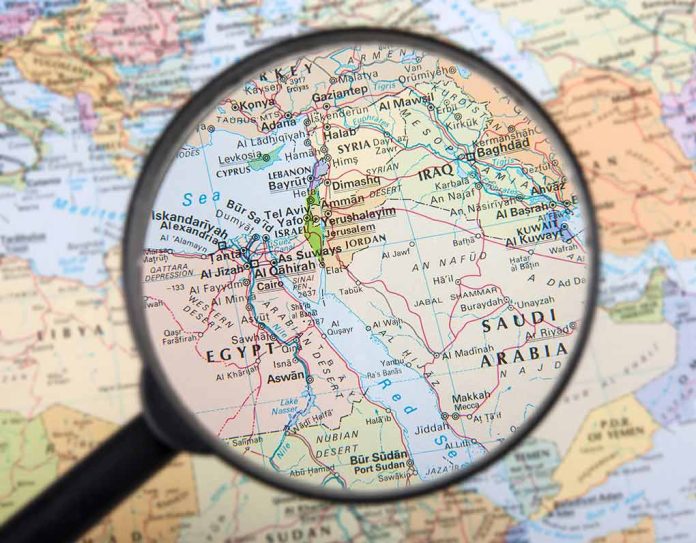
As the Russian Navy makes a strategic withdrawal from Tartus, the future of Mediterranean geopolitics stands on a precarious edge.
At a Glance
- Russian naval vessels exiting Tartus amid heightened Syrian conflict.
- Opposition forces gaining a significant foothold in Syria, challenging Russian presence.
- Potential isolation of Russian coastal bases in the Mediterranean.
- Implications for NATO and overall balance in the region.
Russian Navy Withdrawal
The Russian Navy is reportedly evacuating vessels from its critical base in Tartus, Syria. While official confirmations are sparse, the ship Yelnya’s recent departure indicates responsive measures to deteriorating security conditions. Tartus, pivotal for Russian naval strategy, has lain at the heart of Moscow’s Middle Eastern presence since the outbreak of hostilities in Ukraine.
Russia’s military role in Syria has primarily been aerial, limiting its capabilities to manage ground-level threats. This vulnerability became apparent as opposition forces, led by Hayat Tahrir al-Sham and Turkish-backed factions, seized strategic portions of Aleppo. The assault further escalates tension, posing a risk to Tartus and Latakia bases.
#BREAKING Russia appears to be evacuating its naval assets from Syria’s Tartus port, a strategic military base on the Mediterranean.
On December 2, 2024, the Russian auxiliary ship Yelnya left Tartus, with reports of two frigates, an auxiliary, and a submarine also departing.… pic.twitter.com/4BpsribVcS
— Clash Report (@clashreport) December 3, 2024
Geopolitical Repercussions
The loss of Tartus could severely impact Russia’s grip in the Mediterranean, giving NATO an upper hand. The city of Aleppo, once a testament to Russia’s military prowess, now underscores Moscow’s strategic fragility as rebels control nearly all sections except Kurdish regions. This development pressures the Russian-Syrian alliance, prompting a reassessment of their positioning.
Referring to these shifts, “there is a realistic possibility departure is related to the worsening situation in Syria,” said Droxford Maritime. Russia’s expulsive movements reflect a shift to mitigating potential entanglements as conflict intensity surges across the region. This maritime adjustment follows years of action supporting the Assad regime amidst international scrutiny and humanitarian alarms.
The war is reaching a new stage. Looks like the US is directly destabilizing Russia's proxies and removing its influence in strategic areas. Russia operates a naval base in Tartus, Syria and airbases around Latakia. They, of course, have helped prop Assad up for years, with… https://t.co/VJrN2wFTT0
— Quantus Insights (@QuantusInsights) November 30, 2024
Implications for Syria and Beyond
While the implications are still unfolding, the Mediterranean theater faces a transformative phase. Syrian rebels’ unexpected rejuvenation threatens Russian ambitions, isolating its supports and exposing ground deficiencies within the Assad regime. President Assad, however, vows resilience, citing reinforced defensive lines amid increasing airstrike campaigns. Nonetheless, the situation portends further destabilization barring diplomatic interventions.
As the global community monitors these developments, the consequences of the Russian naval withdrawal from Tartus bear scrutiny. With strategic balances at stake, the region remains an unpredictable flashpoint, enticing global powers into vigilant action. Alliance recalibrations, regional power shifts, and open-ended consequences are likely parts of this intricate Mediterranean jigsaw.






















